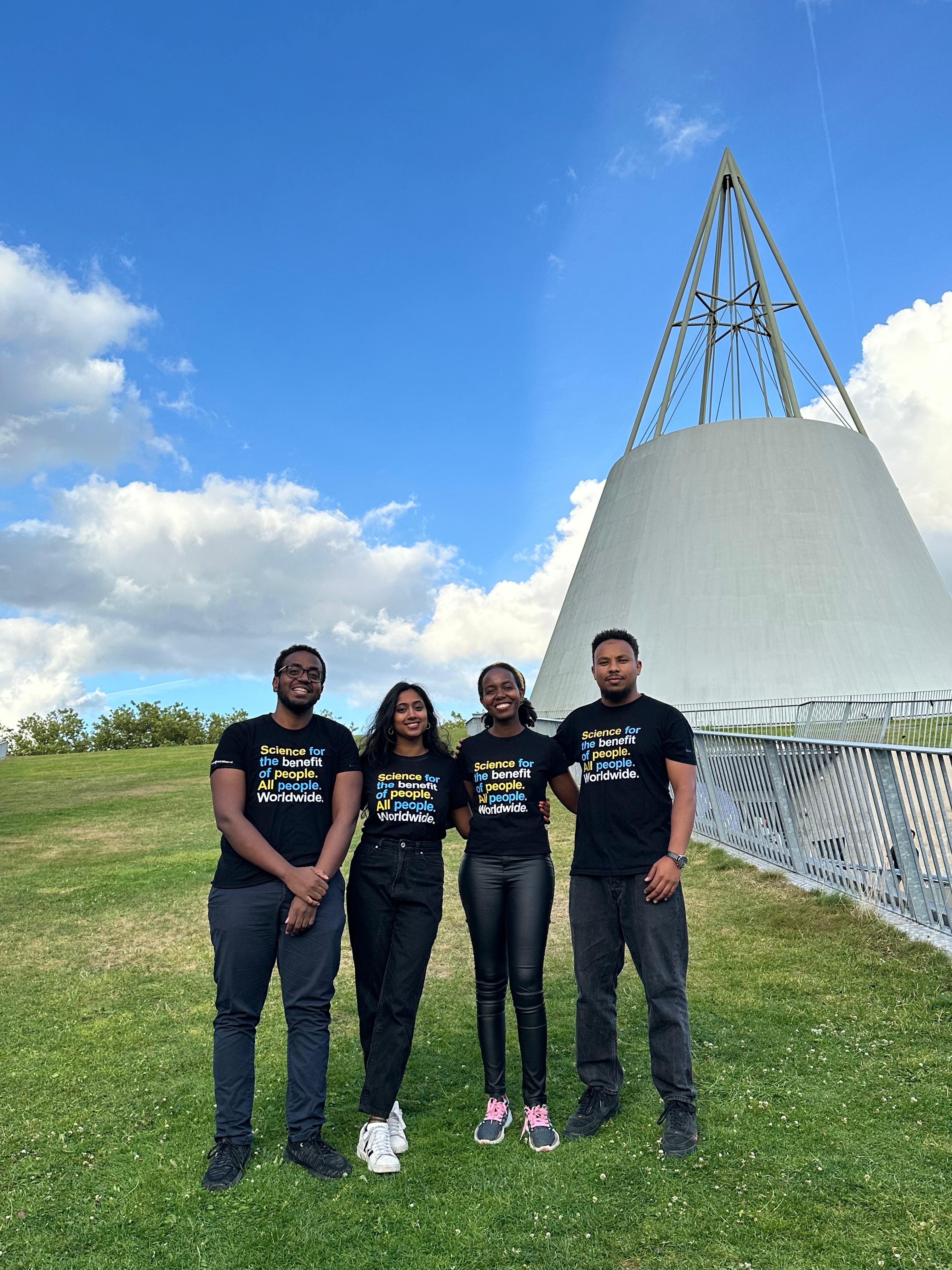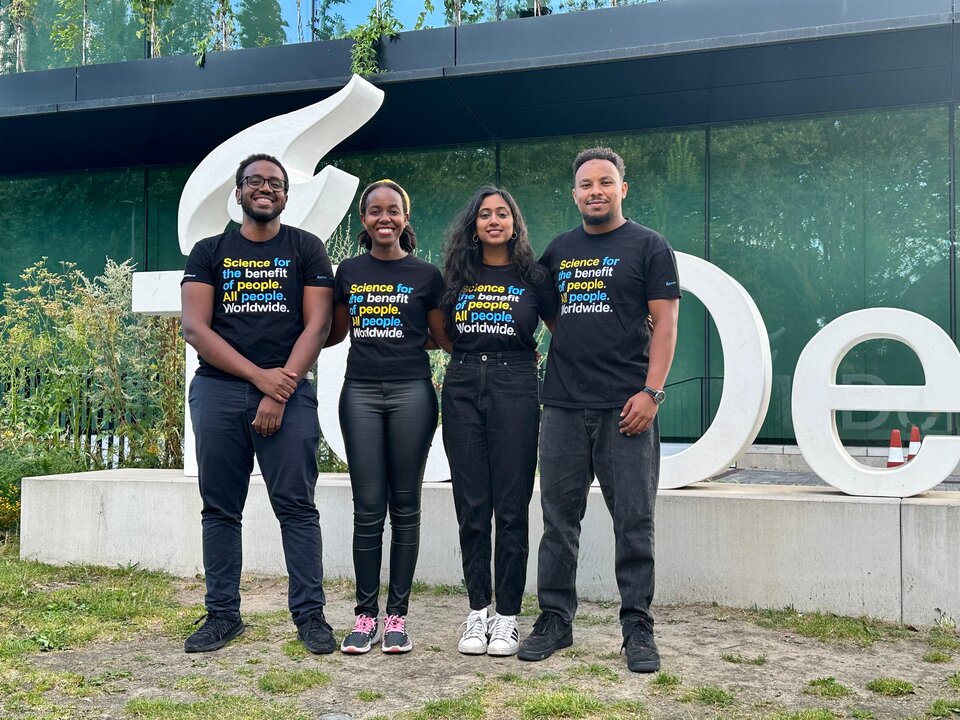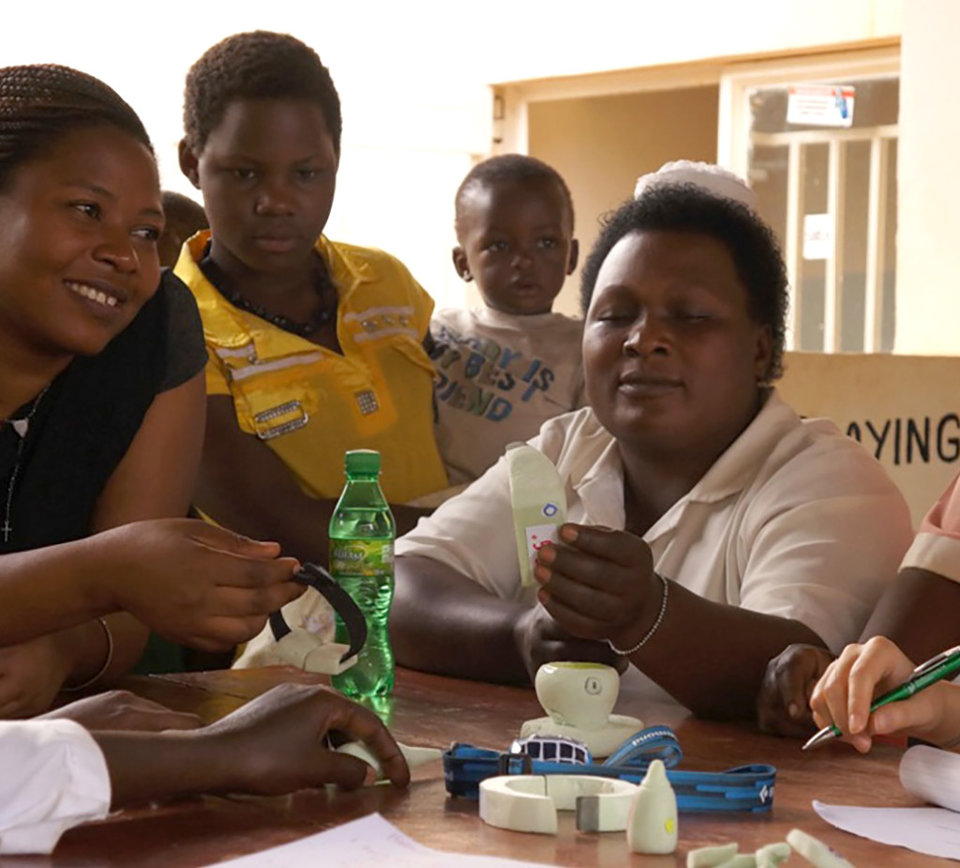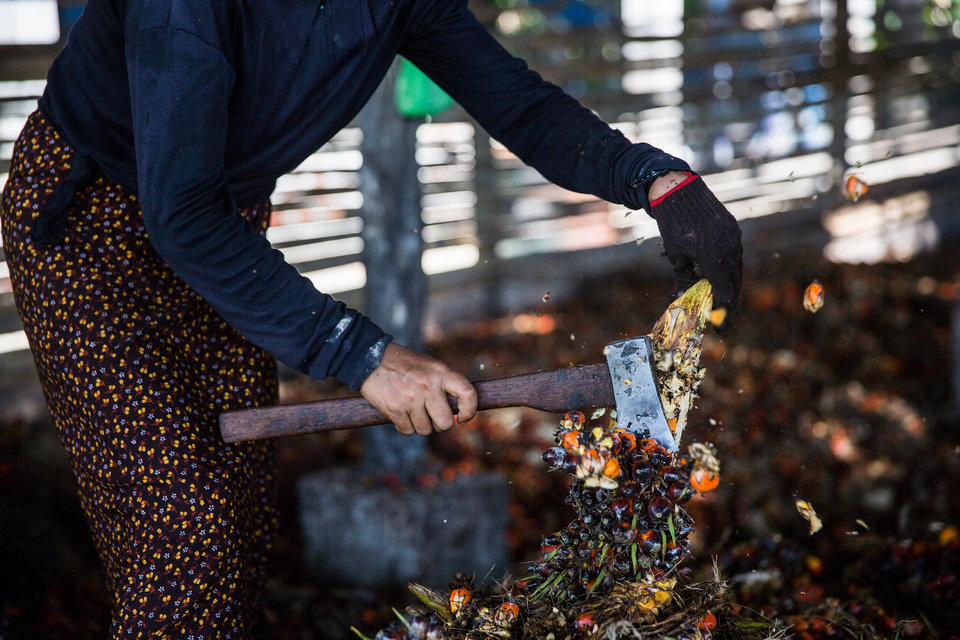International knowledge networks are essential for driving progress, solving global problems, and creating a more interconnected and informed world. For four exceptional students, the Sub-Saharan Africa Excellence Scholarship through TU Delft | Global Initiative provided a transformative opportunity to connect and contribute to this crucial process. Bringing unique perspectives, they navigated a new academic and cultural landscape in Delft, The Netherlands, gaining knowledge and experience that is preparing them to make an impact in Africa and beyond. At the end of their master’s journey in Delft, the cohort of four share what they learned, the marks they left, and their ambitions for the future.
Application factors
Though none had heard of TU Delft before, all four scholars said ranking and reputation was a factor in their decision to apply. Coming from Ethiopia to do a master’s in Architecture in the Building Technology track, Mohammed Hassen says, “After doing a professional architecture degree, I realised I needed more technical skills to tackle the current challenges.” Watetu Mbugua from Kenya was excited when she learned about the scholarship from a former colleague at the World Bank. One factor in her decision to do a master’s in Transport, Infrastructure & Logistics at TU Delft was language. “Everything is in English and there is no strict requirement to learn Dutch,” she says.
“The application process was very straightforward,” says Neeha Brojolall, originally from Mauritius. She came to Delft for a master's in Sustainable Energy Technology. Watetu agrees, noting that this was one of the easier applications she submitted because the admission and scholarship applications are done together. “With other applications, sometimes you get admitted but then have to wait a long time to see if you get the funding from an external provider.” Mohammed pointed to a couple of challenges when it comes to applying: “The first challenge is information; not everyone knows about these things. The second is just simple things like a credit card didn't exist in Ethiopia when I needed to pay the application fee. Luckily, a friend abroad helped me with this.”
New environment
It was the first time abroad for Altayeb Malik, who came from Sudan to Delft for a master’s in Structural Engineering. For him, living alone took some getting used to. “Back home, I was always with my family so I'm used to background noise and having people around.” The four scholars also agreed that it takes time adjusting to the weather. But Mohammed said he loves the cycling culture and the fact the people get on their bikes no matter what the weather is like. “Also, Dutch people are very straightforward with communication,” he says. “It’s a bit daunting at first, but as I got used to it it's very efficient and somehow makes life easier.” Neeha adds: “I found that Dutch people are very helpful. If you need something, they readily help you.” Altayeb recounts being surprised at how safe it is in the Netherlands. “You can leave your phone or your laptop anywhere and you can walk safely at 3am.”
The foursome built a strong bond during the two-year programme that made adapting to their new surroundings easier. “There are not too many Africans in Delft, so with the four of us coming from some similar backgrounds, that helped,” says Watetu. They also said the Delft Global team provided a community and support throughout the process that was crucial to their success.
Education helps people jump to new social and economic stratas. It may seem simple; I'm just some guy from East Africa that came to Delft to study, but what I take is for generations, and I transfer it to whoever comes after me.
Different perspectives
Some things in Delft that differed from home include online resources to track schedules and materials and the focus on a healthy work-life balance. “The university closes at 10 pm, meaning you should rest, have a life, then go back,” says Mohammed. At the same time, says Neeha, “They expect a lot from you at TU Delft. You can’t just show up to class and expect them to explain everything. You must prepare, read, and do your own research.” But Watetu adds, “Lecturers are accessible and respond very quickly to emails and give you a lot of support.” In addition, TU Delft is well connected to industry. “The research we were tackling was not something far-fetched and idealistic,” says Mohammed. “It’s based on real life problems which makes it interesting but also gives you practical skills when you leave the university.”
Unique opportunity
The students agree that the scholarships enabled an exceptional and transformative opportunity. “Logistically and financially, it wasn't possible without it,” says Altayeb. “It's full coverage so I didn't have to worry about working and dividing my time.” This scholarship is also a way to help people break barriers, adds Mohammed. “Education helps people jump to new social and economic stratas. It may seem simple; I'm just some guy from East Africa that came to Delft to study, but what I take is for generations, and I transfer it to whoever comes after me.” The time in Delft also presented opportunities to join extracurricular activities. Being part of the Delft Global Student Club events committee, Neeha says: “You grow as a person, you gain experience, you interact with a lot of companies and people, you learn how to manage and plan things. I learned a lot from it.”

Neeha and Watetu were part of the Delft Global Student Club, the student-led initiative that forms the link between the Global Initiative research community and the TU Delft students.
Adding value
The students gained much in terms of education and experience, but they also added value to the community. Watetu says: “We have different perspectives and that helps. Sometimes the questions I ask are not the questions others ask because I don't have the same background. That questioning process is good in research because it provides different ideas.” For example, she explored the societal impacts of the Dutch bike-sharing system for her thesis, bringing a fresh perspective to local transportation challenges—a study she later presented at a conference.
Mohammed adds: “It's not only that we have to learn from Europe or TU Delft, but there are things that Europe can learn from Africa as well.” Near the end of his studies, he had the chance to present a paper that he co-wrote at a conference. “It was an incredible moment for me to stand on stage with people who are advanced in their discipline, and not only hear from them, but also contribute to the community.” Additionally, the research Neeha did during her thesis relating to climate change and pollution has a patent pending.
It's not only that we have to learn from Europe or TU Delft, but there are things that Europe can learn from Africa as well.
Future ambitions
Studying at TU Delft also opens doors to career opportunities. All four scholars said they plan to continue working abroad initially to gain more experience, which will allow them to create greater impact at home. Mohammed is currently completing a second master’s degree at Georgia Tech University in the US and wants to work in industry to gain experience. “Later, I want to go into research because that’s where I can contribute more and give back to where I am from,” he says. Altayeb is currently applying for jobs in Europe, but eventually plans to return home to teach and share his experience. “Another privilege of a TU Delft degree is that it helps you get work visas in many places,” he says. Neeha is currently working as a research officer at TU Delft, while preparing her patent application. “If I get the opportunity to do something for Mauritius or for Africa, I'm definitely going do it.” And Watetu is currently considering jobs in the Netherlands, but says her ultimate goal is to work for Africa.
Global impact
One notable outcome for this group of scholars is that Watetu, Neeha, and Mohammed all graduated cum laude, an exceptional achievement. (Altayeb is currently finalising his thesis.) Reflecting on their experience, the four agree that TU Delft | Global Initiative has contributed to their success, impacting them both academically and personally. From organising weekly meetups, to individual check-ins, they said the team consistently provided the support they needed. They also highlighted the focus on building community. “The monthly Global lunch allows you see things from around campus, learn from different disciplines, and meet new people,” says Altayeb. Mohamed adds: “These meetings were very enriching because you see it’s not just you trying to tackle problems that focus on the Global South. Delft Global is very active not just in terms of science, but also connecting this bigger community, and I think united, we can make a greater impact.”
2025 - 2027 Scholarships
Delft University of Technology (TU Delft) aims to attract the world's brightest students to its international classrooms. For that reason, it has established several scholarship programmes specifically designed to offer talented and motivated international students the opportunity to pursue a degree at TU Delft. The following scholarships are of particular interest for students from Sub-Saharan Africa and/or South-East Asia to apply (deadline January 2025):





